Now, Rousseau believed that no-one has natural authority over any one else, and that Legitimate authority comes only from agreed conventions. So he needed to come up with a form of social contract that seemed to embody the idea of no-on having more authority than anyone else while still establishing an authority that could tell people what to do! He writes;I SUPPOSE men to have reached the point at which the obstacles in the way of their preservation in the state of nature show their power of resistance to be greater than the resources at the disposal of each individual for his maintenance in that state. That primitive condition can then subsist no longer; and the human race would perish unless it changed its manner of existence.
"The problem is to find a form of association which will defend and protect with the whole common force the person and goods of each associate, and in which each, while uniting himself with all, may still obey himself alone, and remain as free as before." This is the fundamental problem of which the Social Contract provides the solution.
Hopefully you can see his solution: he thinks that if everyone gives up all their individual rights to everyone else then 'each man, in giving himself to all, gives himself to nobody; and as there is no associate over whom he does not acquire the same right as he yields others over himself,'.
Rousseau thinks that this will mean that the conditions and laws of the society constructed on this principle will be fair and reasonable because no-one has any interest in making them harsh. (Because you'd only be making things harsh for yourself.) (This is a little reminiscent of Rawls).
This coming together and mutual pooling of rights creates what he calls the general will, which is like the sum total of everybody's interests:
Each of us puts his person and all his power in common under the supreme direction of the general will, and, in our corporate capacity, we receive each member as an indivisible part of the whole.
Thus forged together in through this social contract the people form a state or republic and collectively as the 'body politic' they are their own sovereign power.
This sounds all very well, but it does have some drawbacks. For example in Chapter 7 'The Sovereign' Rousseau points out that 'The Sovereign, being formed wholly of the individuals who compose it, neither has nor can have any interest contrary to theirs;' this means that whatever the Sovereign thinks is good for you is good for you because really it's you that thinks it's good for you!
This leads to Rousseau's rather worrying conclusion that,
whoever re-fuses to obey the general will shall be compelled to do so by the whole body. This means nothing less than that he will be forced to be free'.
Another justification for this is that Rousseau believes that human beings, although basically good, are weak: we have desires and instincts that can lead us to do things that are not good for us. By getting together and becoming part of the 'general will' we are made to do the things that are good for us, so we are able to properly develop our potential as human beings in a way that we could not in the state of nature, or in a society where we were forced to accept the will of a tyrant.









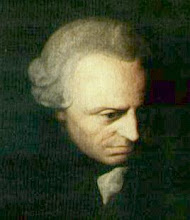





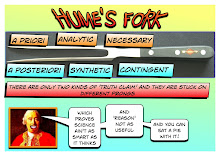
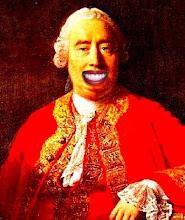



.jpg)

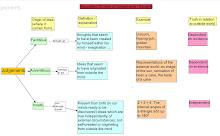
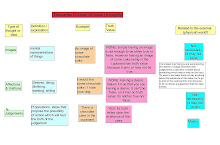
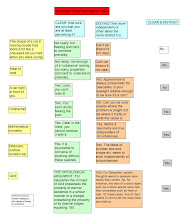



No comments:
Post a Comment